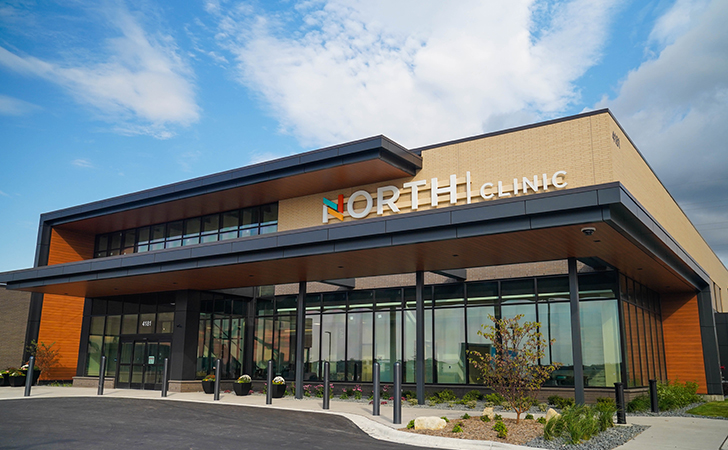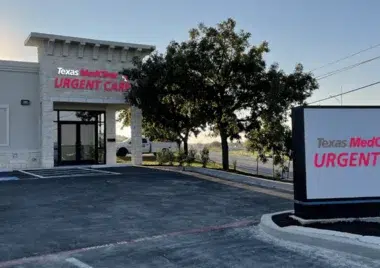The Ultimate Overview to Understanding Urgent Care Clinics
Wiki Article
How Urgent Care Clinics Enhance Access to Healthcare for Sufferers With Immediate however Non-Emergent Medical Requirements
Immediate treatment centers have emerged as an essential component in the healthcare landscape, addressing the demands of people that need immediate attention for non-emergent problems. By running outside of traditional workplace hours and supplying a streamlined method to minor injuries and ailments, these centers not only reduce the worry on emergency situation departments yet additionally improve overall person accessibility to timely treatment. As we think about the implications of this version, it ends up being crucial to take a look at how immediate care clinics are changing patient experiences and results in manner ins which warrant additional expedition.
Function of Urgent Treatment Clinics
Urgent treatment centers play an essential duty in the health care system by giving instant and accessible clinical services for non-life-threatening problems. These centers work as an essential bridge between medical care carriers and emergency divisions, efficiently relieving the concern on hospitals while making sure patients get prompt treatment. By operating prolonged hours, consisting of evenings and weekends, urgent treatment facilities cater to individuals that might not have the flexibility to go to a typical doctor's office throughout basic service hours.The range of solutions provided at urgent care clinics includes treatment for small injuries, ailments, and diagnostic services such as X-rays and lab tests. This breadth of treatment permits people to address a variety of health concerns without the long haul times typically connected with emergency spaces. In addition, immediate care facilities typically utilize a diverse team of health care experts, consisting of doctors, registered nurse experts, and doctor aides, that are furnished to manage different medical circumstances.
Benefits of Immediate Gain Access To

In addition, prompt accessibility reduces the burden on health care service providers and emergency departments by diverting much less critical cases to appropriate settings. This alleviates congestion in emergency situation areas, allowing those with true emergencies to receive the immediate treatment they require without unnecessary delays.
In addition, the convenience of extensive hours and walk-in accessibility implies that clients can look for care without the demand for consultations, which is especially advantageous for individuals with unforeseeable routines or those that might experience sudden wellness problems. - Urgent Care
The ease of access of immediate treatment clinics cultivates a positive approach to health and wellness, encouraging people to seek clinical suggestions and treatment faster instead of later on. This not only boosts client satisfaction however also advertises a culture of precautionary treatment, eventually leading to healthier communities.
Contrast With Emergency Spaces
Frequently, clients discover themselves not sure whether to see an immediate treatment facility or an emergency room when faced with a medical issue. Urgent care clinics are developed to deal with instant however non-emergent medical issues, such as minor injuries, infections, or diseases.On the other hand, emergency rooms are geared up to deal with lethal circumstances and serious medical emergencies, such as cardiac arrest, strokes, or major injury. These centers supply innovative analysis tools and specialist assessments, which can lead to much longer wait times for people with much less vital problems. On average, emergency areas often tend to be a lot more costly than urgent treatment facilities, making immediate care a more cost-efficient alternative for non-emergent requirements.
Ultimately, while both urgent care facilities and emergency clinic play essential functions in the healthcare system, recognizing their particular functions permits individuals to choose the ideal setting based on the seriousness and nature of their medical concerns.
Solutions Supplied by Urgent Care
Immediate care clinics supply a wide selection Visit This Link of services customized view it now to deal with non-emergent clinical requirements, making them a hassle-free choice for people seeking punctual interest. These centers are geared up to take care of various problems, including minor cracks, sprains, and lacerations, which need prompt care yet do not necessitate emergency situation area intervention.In addition, urgent care facilities supply diagnostic services such as X-rays and lab examinations, enabling quicker analysis and treatment of illnesses. Individuals often existing with usual ailments like colds, flu, and infections, which can be successfully taken care of on-site. Urgent care facilities often give preventive services, including vaccinations and health and wellness screenings, adding to general public wellness.
An additional key service offered is the management of chronic conditions intensified by severe signs, such as bronchial asthma or diabetic issues, making certain patients receive prompt treatment without frustrating emergency situation solutions. Lots of facilities additionally prolong their hours past standard workplace routines, improving availability for individuals who may require treatment throughout weekends or evenings.
Improving Patient Outcomes

Urgent treatment facilities are outfitted to manage a variety of non-emergent medical issues, consisting of small injuries, infections, and health problems. Their focus their explanation on accessible, top quality treatment permits patients to obtain preventative solutions and proper treatments, cultivating far better health and wellness administration. Moreover, these facilities commonly employ a multidisciplinary approach, incorporating various medical care experts to ensure thorough care.
Client education and learning is also a vital component of boosting outcomes. Immediate care providers often offer assistance on follow-up treatment, preventive actions, and lifestyle adjustments, empowering clients to take an active function in their wellness. The combination of instant gain access to, specialist treatment, and patient education not only improves contentment yet also leads to improved long-lasting health and wellness results, enhancing the worth of immediate treatment facilities in the healthcare continuum.
Conclusion
In summary, urgent care clinics serve a vital role in enhancing healthcare access for clients with immediate, non-emergent medical needs. By providing timely solutions outside typical workplace hours and lowering wait times, these clinics effectively reduce pressure on emergency situation areas. The array of solutions provided adds to improved patient end results, advertising positive health and wellness management. Ultimately, immediate care facilities are essential in linking the void between health care and emergency situation services, making sure easily accessible and effective healthcare for areas.
On average, emergency situation rooms often tend to be much more pricey than urgent treatment facilities, making urgent treatment a more cost-efficient option for non-emergent requirements. (Urgent Care)

Inevitably, immediate care centers are important in linking the gap in between key care and emergency situation services, making sure obtainable and effective medical care for communities.
Report this wiki page